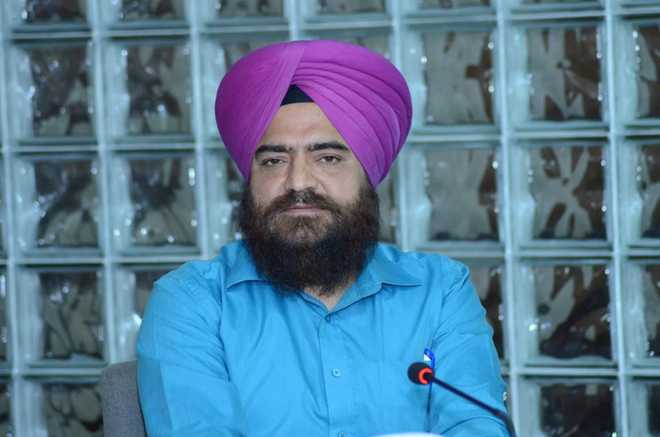Pak drops pro-Khalistan activist Gopal Chawla, others from PSGPC
Varinder Singh
Tribune News Service
Jalandhar, July 13
Conceding to India’s demand, the Imran Khan-led Pakistan government has removed Khalistani supporter Gopal Singh Chawla from the top position of the Pakistan Sikh Gurdwara Parbandhak Committee (PSGPC) just a day before the crucial July 14 technical level talks to sort out and finalise nitty-gritty of the Kartarpur corridor.
India has been raising its objections and concerns over inclusion of ‘anti-India’ and Pakistan-based ‘Khalistan supporters in religious bodies of Sikhs in Pakistan’. It was also said to have been conveyed by India in clear terms that continuation of such radical leaders would cast its dark shadow in operationalistation of the Kartarpur Sahib corridor.
As Pakistan has re-constituted the PSGPC, the other pro-Khalistani leaders who no longer figure in the new list were: Tara Singh, Bisan Singh, Kuljit Singh and Maninder Singh.
The main objection of India has been that Gopal Singh Chawla was known to be a close aide of Jamaat-ud-Dawa (JuD) chief Hafiz Sayeed and that he has been ‘misuing’ the Pakistan gurdwaras’ premises for propogation of anti-India sentiments.
Chawla had came to limelight last year and had stirred a wave of anger across India when he had stopped Indian officials from visiting a Lahore-based gurdwara to meet Indian Sikh pilgrims converged there. His name had popped up in the investigation into a grenade attack at Nirankari Bhawan in Amritsar in November last wherein three people were killed. His photographs with terrorist Hafiz Saeed had surfaced in media.
The Imran-led Pakistan government had apparently sensed that the sensitive issue of pro-Khalistanis active in Pakistan could surface in the July 14 crucial meeting and that it could even hamper the talks which have been going on smoothly so far.
India had not only asked for clarification as to why they (Chawla and others) have been included in the Kartarpur committee but it had also made it clear to Pak that it was ready to go ahead with the corridor but without any let up on the country’s security concerns.
Earlier, second round of talks scheduled to be held on April 2 were kept in abeyance after Khalistani elements were inducted in Pakistan’s Kartarpur corridor committee.
With the removal of Chawla and other Khalistanis from the PSGPC, one major impediment has been removed. But both sides would have to a long way to go to make the corridor operarional for Sikh pilgrims at the earlier and also to celebrate Guru Nanak’s 550th birth anniversary jointly in November this year.
The two sides are yet to hammer out a consensus on certain major issues, including the mode of connectivity. India wants a bridge over the seasonal flooding prone creek leading to Kartarpur but, Pakistan was insisting upon a causeway.
The other major issue to crop up tomorrow was the quantum of passengers to be allowed to go to the shrine on a daily basis. While Pakistan has been saying it was ready to handle just 700 pilgrims, India was persisting that 5,000 pilgrims should be allowed daily.
Kartarpur corridor was first mooted in 1999 by then Indian Prime Minister Atal Bihari Vajpayee and subsequently the foundation stone of the corridor was laid on Pakistan side on November 26, 2018.
India and Pakistan were keen to finish the corridor work at the earliest to make the event coincide with the 550th birth anniversary of Guru Nanak Dev in November 2019.
Upon completion, the corridor will connect Gurdwara Darbar Sahib in Pakistan’s Kartarpur with Dera Baba Nanak shrine in Gurdaspur district in India. The completion of the corridor will facilitate visa-free movement of Indian Sikh pilgrims. The pilgrims will require just a permit to visit Kartarpur Sahib --- established in 1522 by the faith’s founder Guru Nanak Dev.









